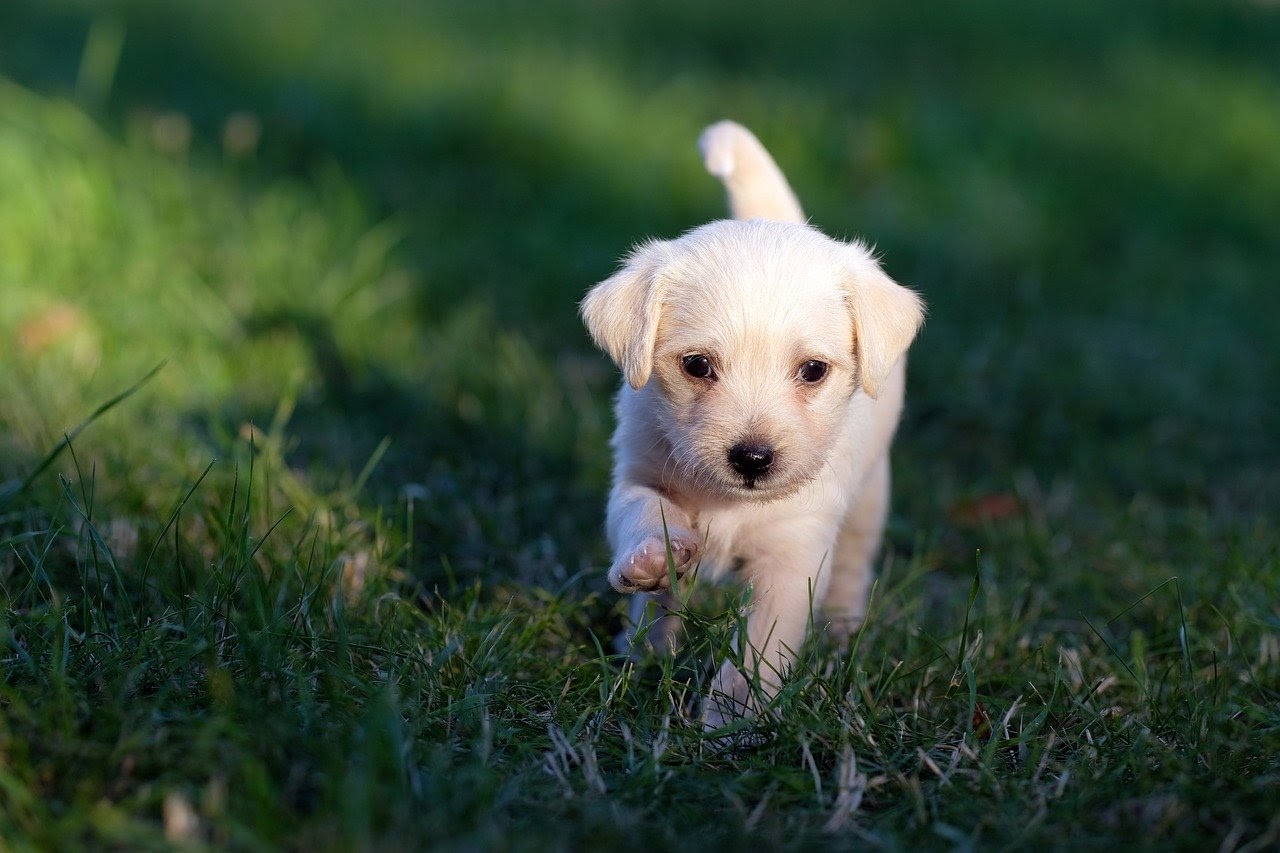
January 07, 2021 3 min read
Opening your home to a new puppy is a joyful and challenging experience. As puppies mature into grown dogs, they may exhibit some behaviors you find strange. Sometimes, these puppy behaviors are a normal part of growth. Other times, the behaviors may be a sign of something more serious.
Take a look at the signs below to determine which behaviors to look out for in a new puppy, and what those behaviors mean.
It’s not uncommon for puppies to nip when they’re young. It may happen often when the puppy is playing because playfully biting is common between canine siblings. While it isn’t a concerning behavior for young puppies, the behavior should be remedied before it becomes a problem. Train your puppy not to bite human hands or clothes, and if you need help, consult your veterinarian or a veterinary behavioral professional.
It may be cute to have your puppy jump up to greet you when they’re small, but many breeds grow significantly before reaching adulthood. A fully grown dog jumping on people may become a hazard. Start teaching your puppy not to jump on people (and furniture if you choose) when they’re still small.
Puppies are curious creatures, so it’s normal for them to investigate everything around them. However, excessive circling and sniffing around may be a sign that the puppy needs to take a trip outside to relieve its bowels. Keeping an eye on these puppy behaviors can help make house-training easier. Know what to look for and your puppy will be house-trained in no time.
Puppies have plenty of harmless, yet peculiar behaviors. However, if your puppy becomes withdrawn and presses its head against the wall, there is an issue. Head pressing can be an early sign of serious health problems, so it is definitely a behavior to look out for in a new puppy. If you notice head pressing, contact your pet’s veterinarian to be safe.
If your puppy scoots around with its bottom pressed against the floor, this may be a sign that something is irritating it. Often, scooting across the floor is a puppy’s way of relieving the itch and inflammation. There may be several causes behind the inflammation, but most of the time, allergies or full anal glands are the culprit. Other times, the issue may be caused by worms.
Though worms do not commonly cause this puppy behavior, it’s wise to keep an eye on your puppy’s fecal matter for any signs of worms.
If the behavior becomes concerning, speak to a veterinarian.
Puppies chew for a variety of reasons. When their teeth are growing in, it’s common for a puppy to chew just about everything. However, if the puppy begins to chew his or her skin to the point of losing hair or causing irritation, pay attention. Puppies may experience skin inflammation due to food or environmental allergies. Because a puppy can’t always scratch an itch with their paws, they might use their teeth.
Additionally, chewing behaviors may be a sign that your puppy has anxiety. Bring up the behavior with your veterinarian to determine what solutions may be available.
This issue is more common in large breed dogs than small breeds. When a puppy or young dog is active and in a happy environment, they wag their tails. Occasionally, when indoors, a puppy may wag his tail too carelessly and slam it into nearby objects. These incidents can cause wounds to open on the puppy’s tail that need immediate attention.
Tail injuries of this sort are not uncommon, but if your puppy’s tail is healing slowly or the puppy keeps re-injuring it, speak to a veterinary professional.
Puppies whine when they need your attention. However, if you find that your puppy whines excessively, it’s worth looking into the underlying cause. Puppies may whine if you have to leave them in their crate to run an errand. This puppy behavior is normal if the puppy is whining in short intervals.
If the puppy is whining nonstop, he or she may suffer from canine separation anxiety. Additionally, if the puppy is whining for no visible reason, he or she may be experiencing pain.
If a puppy’s whining does not fade away, you may want to speak to your veterinarian about what may be causing it. Your puppy’s doctor can recommend options from there.
Raising a curious puppy into a loyal, loving dog is a rewarding experience. So long as you’re aware of behaviors to look out for in a new puppy, your pet should grow healthy and happy. When in doubt, talk to your pet’s veterinarian and ask for advice about your puppy’s many interesting behaviors.